Often when I write to poets asking for permission to use their poems they’ll ask, ‘ how did you find me?’ And 90% of the time I can’t remember. I spend a lot of my time flicking in and out of various poetry web sites and often one poem will lead me to another and then on to another poet and so it goes on…….. When I first read Mick’s poem, (and no I can’t recall where), I knew I wanted it for the cards. It took me several months to track Mick down and after explaining who I was and why I’d like a loan of his poem the reply came back…
I’d be honoured if you would include my poem on your poetry card. It was written specifically to support a good friend going through a difficult time and if it can do the same for others so much the better.
We communicated several times and Mick mentioned that he used to visit New Zealand during his business career. Unfortunately I never got to explore much – mainly office and factory visits in and around Auckland, punctuated by the odd game of squash with my colleagues. Beautiful country, though, and lovely people.
So when I contacted Mick in early February asking him if his poem could be included in the selection I was offering to the artists he was as enthusiastic as ever.
Introducing Mick Stringer:
This is a relatively recent picture of myself in front of my old school in Bradford, with which I still have close links.
Ahhh, my favourite place? Well it has to be Ilkley Moor. I was born in Yorkshire (although I now live in the South of England) and this is the emblematic place for all Yorkshire folk.
Mick Stringer
A life
(Sorry – totally pretentious but utterly irresistible!)
According to my mother I was born during a thunderstorm in July, 1944, but allowing for her gift of dramatic exaggeration it is just as likely that the event was accompanied by an unremarkable passing shower of light rain. The place was Bradford in West Yorkshire, once the capital of the world’s wool trade, a city of blackened millstone grit and a stubborn character to go with it.
At the age of eleven I won a scholarship to the Grammar School. I never got along with the discipline and petty regulations and in those days when canes still ruled, I collected the marks to prove it. But I had some great teachers and absorbed a love of languages and literature that has lasted a lifetime.
Seventeen years old, and with all the arrogance of youth, I made my way to Rotterdam and signed on as a galley boy on a South America bound cargo ship. It was an eventful experience, including a miraculous survival when in a moment of over exuberance I leapt on the back of a Brazilian policeman and removed his gun from its holster. Fortunately my shipmates were nearby and I believe a certain amount of money changed hands.
Possibly this incident persuaded me that a mariner’s life was not for me, and back in the UK I drifted from job to job, with occasional breaks to travel around Europe, until I ended up as a cost and production clerk in a secondary aluminium refinery. I loved the factory life, the boiling metal, the heavy machines, the sweat. At the same time I joined a local theatre group, treading the boards in productions of Othello and King Lear and in my spare time teaching the new-fangled “method acting” to enthusiastic youngsters all of three or four years younger than me.
Eventually, I decided that to get on in life I needed to resume my education. I went to night school, obtained the necessary entrance qualifications, and at the grand old age of twenty-three won a place to read Psychology and English at Keele University. My then girlfriend, Kate, was already studying at a nearby teachers’ training college, and we have been together ever since.
After four years in academia I was hungry to return to factory life. I got a position as a Management Trainee at a cooker factory in Birmingham, studied for my accounting exams by correspondence course, and won rapid promotion. Still in my early thirties I was appointed to the board of a Leeds-based company manufacturing heavy-duty hydraulic equipment for the global market. I travelled extensively, indulging my love of languages, learning about the shades and nuances in cultures we think we understand but really don’t.
It would be tedious to recount the rest of my business career. It ended long after I had left the North behind and had become the proud father of two fabulous daughters, now mothers themselves. I phased myself out, part-time interim management, a bit of consulting here and there, a return to creative writing, and, finally, signing on to do a part-time Classics degree at Reading University. I’m still there. I obtained my BA, then my MA and am now approaching the half-way stage of my PhD. My thesis, “Words, Numbers and Economic Rationalism”, uses the work of Roman writers on agriculture to show how language and accounting systems shape our views of what is economically rational, providing, I like to think, some lessons for today’s bankers and financial managers. In a way it is a culmination of my career, pulling together the threads of behavioural science, language, business and the classical world that have run through my life.
I have been writing poems and stories since my youth. Several have found a home in various “small press” publications, my three novels, alas, remain unpublished. I love the Waiting Room idea. The thought that a few of my lines can help someone through moments, minutes, even hours of anxious waiting is a humbling one, but if they really do help, that must be worth more than any royalty cheque, or their presence in some glossy hard backed coffee table volume that is rarely, if ever, opened.
My poetic biography is more colourful:
The Journey
Open the hatches and unlash the wheel
the storm is nearly blown
and our hero has been thrown
from the deep and dark blue sea
flesh all sanded throat washed dry
upon that beach of rainbow sands
where one rare and southern holiday
I spooned my childish colours
in a crystal tube of hope
mosaics that bumping homewards
merged to dull homogenous brown
Home where grey grass tufted
flecked with white by withering winds
dying as if a locust perched
and gnawed at every blade
where thick black lines of chimneys
crossed sunset’s copper sky
and in pubs and chapels singers
sang of one to come in flames
home where I learned out on the moors
that neither god nor lover lived
up in that copper sky
Black walls crossed the dying fields
beneath that northern heaven
stone everywhere dark as the sea
under a starless night
stone steps squeezing up alleys steep
stone snickets licked by stuttering lights
stone shadows scuttling like rusty leaves
along stone streets into stone corners heaped
I slipped between the sooty bulks
of church and school and mills
in that hard land of stone
Love promised that tomorrow
I would drink bright-coloured dreams
shining as the morning sun
that slants through painted windows
in the church atop the hill
love brought rain too
and inked the quiet waters
where I sat with her in stillness
by a stream that cut the moor
and once there was a bitter frost
that pinched love’s leaves all black
This is the sea we walked by once
it still goes on still stirs
the popping seaweed fills the pools
with tiny creatures waving at the shore
still rolls the tides of memory
as the world’s flat engine pinks
here is the wood where the horses blew
the cobbles that rattled the crates
the pond where the drifting bobbing boats
whispered their hopes to the water
these I will never forget
Nor will I ever forget
how the night’s lights glowed when I drove away
and the fair spun on without me
I have come far from those grey-grassed fields
and those shattered chequered walls
I have come far from the copper sky
and the smoking chimney stacks
thrown by time back on the beach
to sort my sands anew
to recreate a rainbow life
from scenes of long ago
I emailed Mick requesting some photos, and this morning four were sitting in my ‘in box’ – perfect companions to ‘The Journey.’
That hard land of stone. My grandfather, who died before I was born, was something of a local historian and I have his notes on the area in which I grew up – Lidget Green in Bradford. These are his pictures of some of the buildings around the Green. A total misnomer by the 1930s when I guess the photos were taken – not a trace of vegetation to be seen.
This is the sea we walked by … In 1999 I completed the Coast to Coast walk, from the west to the east of England. This is me at the end of the journey – standing on the beach at Robin Hood’s Bay in North Yorkshire.
Here is the wood where the horses blew. This was taken a mile or so from where I now live in Maidenhead. Such winters are rare down here in the South but they were the norm when I was growing up in Yorkshire.
To sort my sands anew … This shows my daughters when they were girls playing among the rainbow sands at Alum Bay on the Isle of Wight. It was here that, as a boy, I too collected sands of many colours. Nowadays the place is fully commercialised and I believe you collect your sands from rows of boxes instead of climbing the crumbling cliffs. Shame
And three more poems from Mick
View from a Tower
Here is the limit of our world.
The blood of our eternal city
Flows this far and nourishes.
Beyond is wind and water,
Barbarous land that never bore the vine.
Standing on the eighth mile tower,
I, Marcus Quintus, Legion Six – Victrix-
Span the cusp of time,
Stretch eyes and mind into the fading far,
Seeking the stone-clad firmness of the square.
The certain road cuts to the midday sun:
Eboracum, then Lindum, through Londinium;
Beyond, our galleys ply the leaden sea
And double lines of legionaries
March to the Forum and the Capitol.
I look back to the golden glow of dawn
When our proud eagles rose
And, with our sturdy soldiery, spread our peace,
Our modest virtues, honour, love of home.
With these we conquered.
For these we spilled our blood.
In the name of these we died.
Then I peer forward
Through damp mists to a cold sea.
The view dissolves in drops
That fall and cling to clumps of reedy grass,
Bending with drizzled beads of dull uncertainty.
I see strange tribes
With mad, confusing symbols on their shields,
Beating before them fire and smoke,
Leaving behind a boiling wilderness.
I cannot see their gods.
They must be terrifying.
Standing on the eighth mile tower,
My plated armour weighs,
The leather chafes, my sodden cloak hangs limp.
But here, I know, in space and time
Exactly where I am.
I am glad of that.
View from a Tower was recently published in The University of Reading Creative Arts Anthology : “One Moment’s Clouds” (ISBN 978-0-7049-1532-9).
Frames
Right-angled corners
windows, edges, frames
condense the world outside
to manageable fragments
disconnected
from the wider view.
A TV aerial defines
a rectangle of sky
thickens the blue
renders possessable
a sector of infinity
where a plane –
a silver dot dragging a vapour trail –
scratches the sky
like a razor cuts the skin
cleanly
quickly closing
gone.
There was a time before me
another when I was but did not know
among a billion mirrors
reflecting eternity
from three slim slivers
I smile out
shake my rattle
wed
collect my watch.
Beyond me there will be
a sweep of street
blocked out by shrubs
some stretch of sky above the house
where clouds dissolve
or build to shapes
fantastic
and unknown.
There is forever
in that unframed vastness
when my edges are unpicked
and laid aside.
You’ll find a bridge
The river
gorged with cold spring rain
hollowed our ears with its rushing
dragged bankside grass
into the stream
flowing like hair
on a drowned Ophelia.
Failing to tent the race
the stepping stones
thrust into the flood
smooth backs
of glass-capped purity.
We stood uncertain
blocked
by all this sea-bound urgency.
A throbbing tractor
thumped the river’s roar
rattled a cart on a rutted track
then stopped and gently idled
while a voice
as firm but moss-soft as a limestone wall
burred
“You’ll find a bridge up there.”
In the cart
snout flat against the deck
a sheep
a mound of grey-curled lanolin
nuzzled her lamb
a sopping pulse
with twigs of untried legs
birth-streaked with blood.
“She’s cold. Don’t want to feed.”
“Will she be right?”
“Aye. Needs a bit of warmth.”
His crinkled face was weathered
brown and invisible
against the brackened moors
but the eyes
washed clear by life and death
spoke care and comfort to us.
“You’ll find a bridge. Can’t miss it.”
Then the perfect whole
of farmer, ewe and lamb
clattered off towards some straw strewn barn.
We found our bridge.
I wonder, though,
did they?
“You’ll find a bridge” is, of course, located in Yorkshire. By the way, if you’re interested in my academic (as against literary) interests there’s a bit of stuff on the Academia website: http://reading.academia.edu/MickStringer


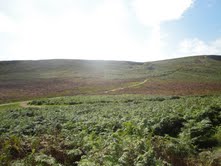
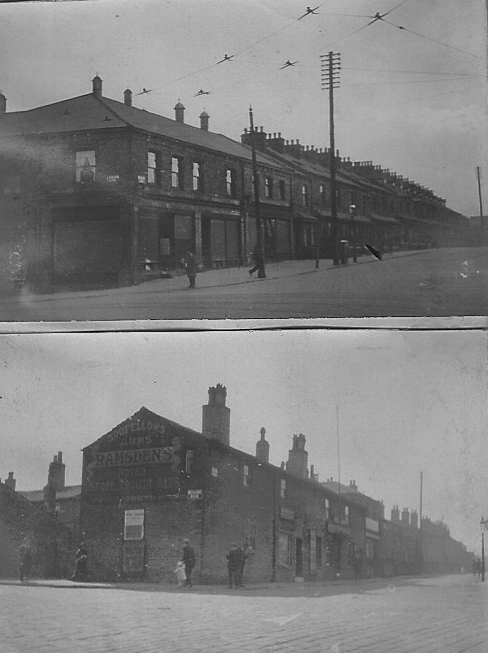
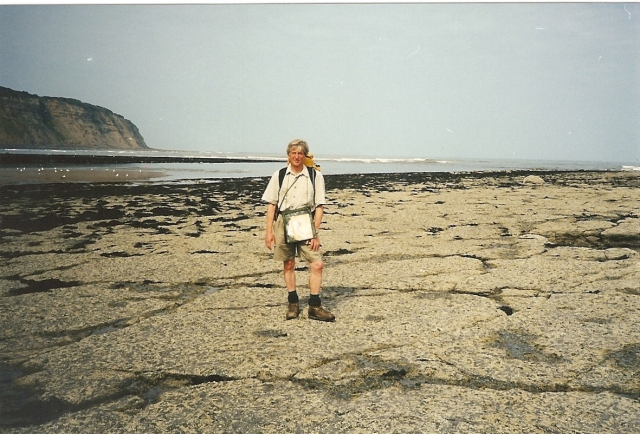
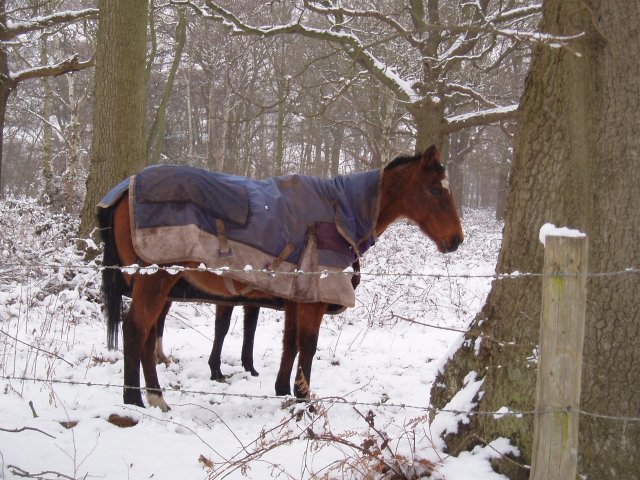
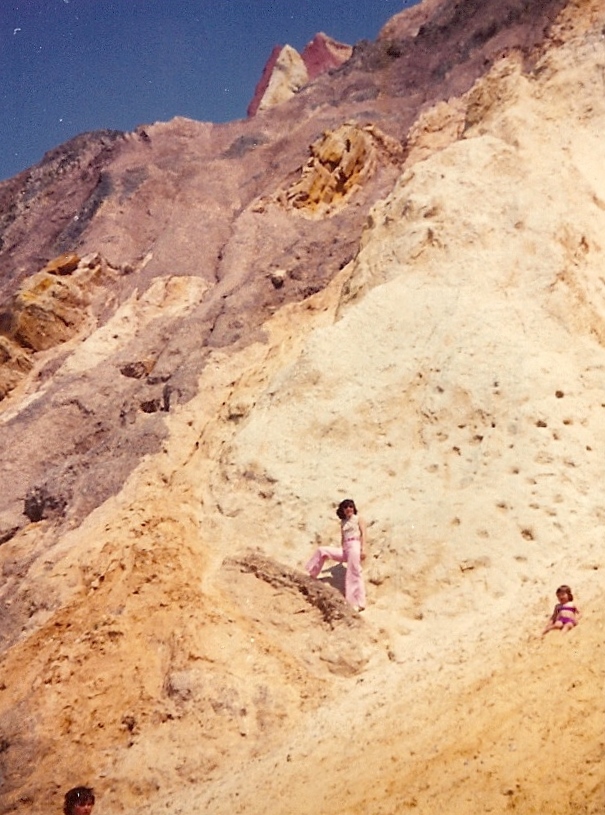
Pingback: Mick Stringer Poeticus | News from the Department of Classics at Reading